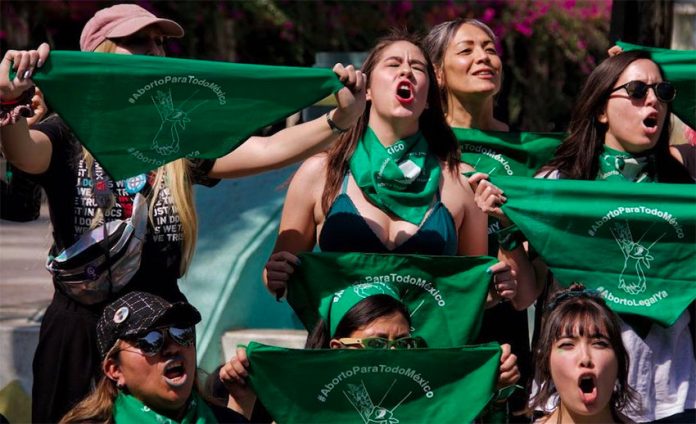The Supreme Court (SCJN) has dashed the hopes of abortion activists who were optimistic that it would deliver a landmark ruling on Wednesday that would pave the way for the decriminalization of abortion across Mexico.
Four of five judges of the court’s first bench voted against upholding an injunction granted in Veracruz that ordered the state Congress to remove articles from the criminal code that stipulate that abortion in the first 12 weeks of pregnancy is illegal.
If the SCJN had upheld the injunction, the decision would have set a precedent that could have led to further court orders instructing state legislatures to legalize first-trimester abortion.
“This ruling could allow us to petition for injunctions or other measures in the rest of the states which have restrictive regulations on abortion,” Rebeca Ramos, a lawyer and director of a Mexico City reproductive rights organization, said before the SCJN handed down its decision.
Mexico City and Oaxaca are the only states that have decriminalized abortion.
Supreme Court Justice Juan Luis González wrote in a briefing presented at today’s hearing that “the total prohibition on interrupting a pregnancy – through criminal classification – is a barrier, which creates discrimination against women in relation to the right to health.”
According to international human rights treaties, the briefing added, “the decisions of a woman during the … first 12 weeks of pregnancy … are part of her private life, not subject to the sanctioning authority of the state.”
However, the other four justices didn’t support González’s position. A a result, hopes that abortion could be legalized across the country in the short term were crushed and the Veracruz Congress will not be required to change the state’s criminal code.
A growing feminist movement in Mexico has intensified calls for greater reproductive rights as well as sterner action against gender-based violence.
But President López Obrador has not shown a lot of interest in addressing the abortion issue or women’s rights more broadly, preferring to focus on his commitment to stamp out corruption.
According to Maricruz Ocampo, a pro-abortion activist in Querétaro who works with victims of sexual violence, Mexico’s political class is still “in cahoots with the Catholic Church.”
However, Ramos, the lawyer, had expressed optimism that the court would rule in favor of the Veracruz injunction.
“The court is getting to the heart of the matter and is now much more forceful in terms of indicating that abortion is a matter of human rights,” she said.
National and international women’s collectives sent a letter with more than 5,000 signatures to the court, urging it support the decriminalization of abortion in Veracruz, while religious groups petitioned the court to take the opposing position.
The 4-1 vote ensured that the latter got their way, meaning that for the time being at least, only women in Mexico City and Oaxaca will be able to access legal abortion services.
Source: Sin Embargo (sp), The Guardian (en), El Financiero (sp)
CORRECTION: We were minding our p’s and q’s but confused our pros and cons. The term pro-life appeared in the previous version of this story when it should have read pro-choice. Our apologies.
